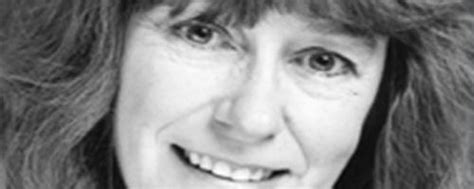A Quote by Jeanette Winterson
Yes, the stories are dangerous, she was right. A book is a magic carpet that flies you off elsewhere. A book is a door. You open it. You step through. Do you come back?
Related Quotes
There were times when I thought I had to be completely off-book and ready to give my opening night performance at the audition, but then I swung back to a more relaxed view of it. Certainly you've looked at the material and prepared it, but there's no reason to be off-book. You're not getting points for being off-book.
My books have been part of my life forever. They have been good soldiers, boon companions. Every book has survived numerous purges over the years; each book has repeatedly been called onto the carpet and asked to explain itself. I own no book that has not fought the good fight, taken on all comers, and earned the right to remain. If a book is there, it is there for a reason.
In my case, I made the decision early on that I was going to be very open about the book and claim upfront that each of the stories was based on my life experience. I think my reasoning goes back to what I was saying earlier, about wanting the book to be "more than a book," that I wanted the reader to feel a little unsettled about what they were reading: there's a core of factual truth here.
I don't know but a book in a man's brain is better off than a book bound in calf--at any rate it is safer from criticism. And taking a book off the brain, is akin to the ticklish & dangerous business of taking an old painting off a panel--you have to scrape off the whole brain in order to get at it with due safety--& even then, the painting may not be worth the trouble.
One of the metaphors of the book is the carpet. Not just the flying carpet, but the carpet as a woven surface in which many repetitions and motifs recur and mirror one another. This is very much reflected within the stories: they have borders within borders, repeated motifs which change. They have their feet in oral conventions, and for the mnemonics, the storyteller needs to have a structure in order to remember the stories.
If you take a book with you on a journey," Mo had said when he put the first one in her box, "an odd thing happens: The book begins collecting your memories. And forever after you have only to open that book to be back where you first read it. It will all come into your mind with the very first words: the sights you saw in that place, what it smelled like, the ice cream you ate while you were reading it... yes, books are like flypaper—memories cling to the printed page better than anything else.
Looking back over the years, I realize the Bible isn't magic, but it is corrective; it isn't an answer book, it is a living book; it isn't a fix-it book, it is relationship book. When I confront God's word, I am confronted; when I read God's word, it reads me; when I seek God's presence, He seeks me.
I'm no longer religious, but the Bible fascinates me. Hardly anyone reads it anymore, but it's got everything: it's a book of poetry, it's a book of principle, it's a book of stories, and of myths and of epic tales, a book of histories and a book of fictions, of riddles, fables, parables and allegories.
I have always believed in the magic of childhood and think that if you get your life right that magic should never end. I feel that if adults cannot enjoy a children’s book properly there is something wrong with either the book or the adult reading it. This of course, is just a smart way of saying I don't want to grow up.
It was exciting to work with director Jennifer Baichwal, who made Manufactured Landscapes and others, on the film of Payback: Debt and the Shadow Side of Wealth. It's called, simply, PAYBACK. Jennifer didn't want to do a transliteration of the book, a kind of illustrated version, but to go into the core of the book: owing and being owed, paying and paying back, on all sorts of levels. So she found real-life, visceral stories that embodied the themes of the book.






































